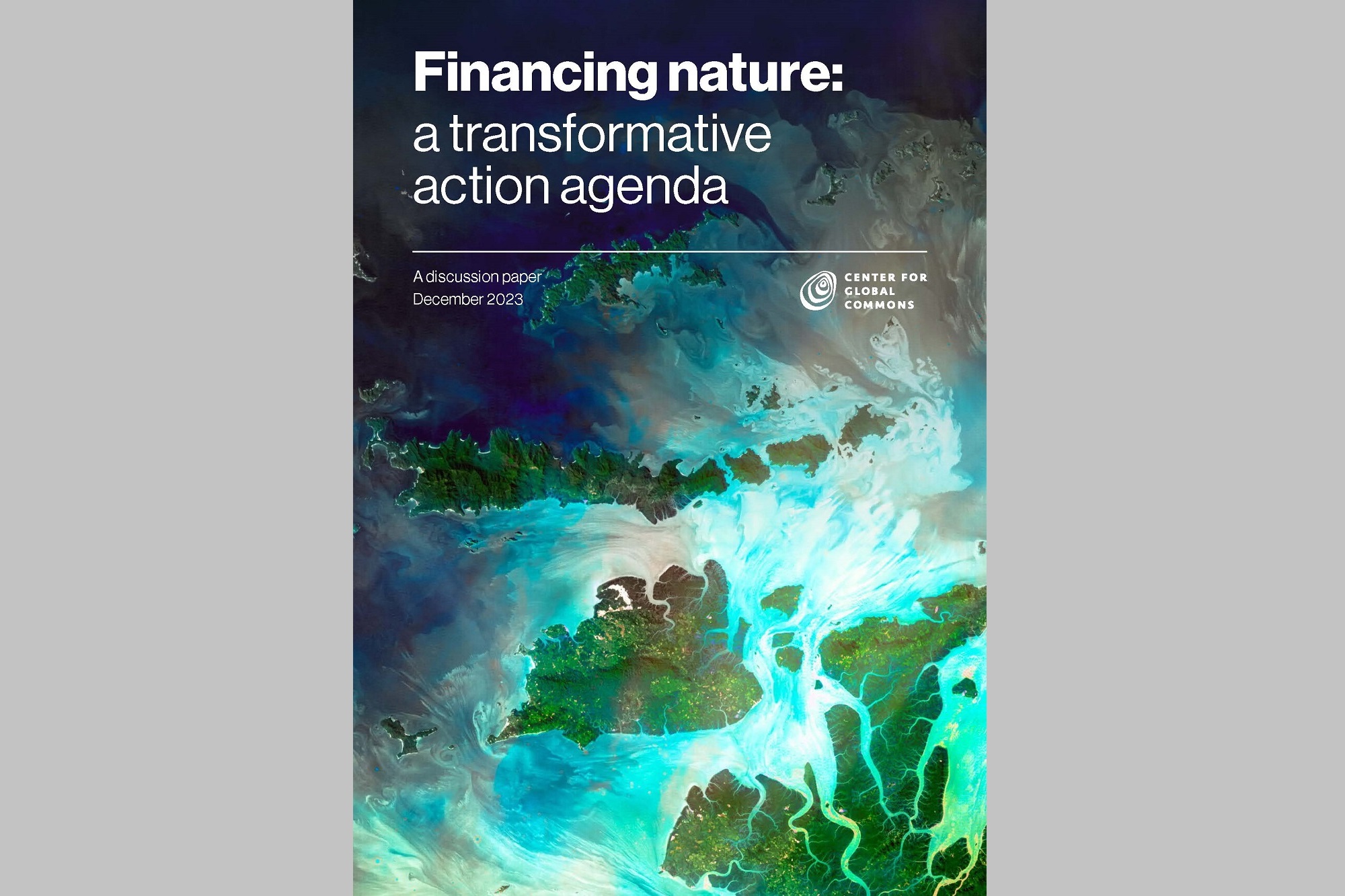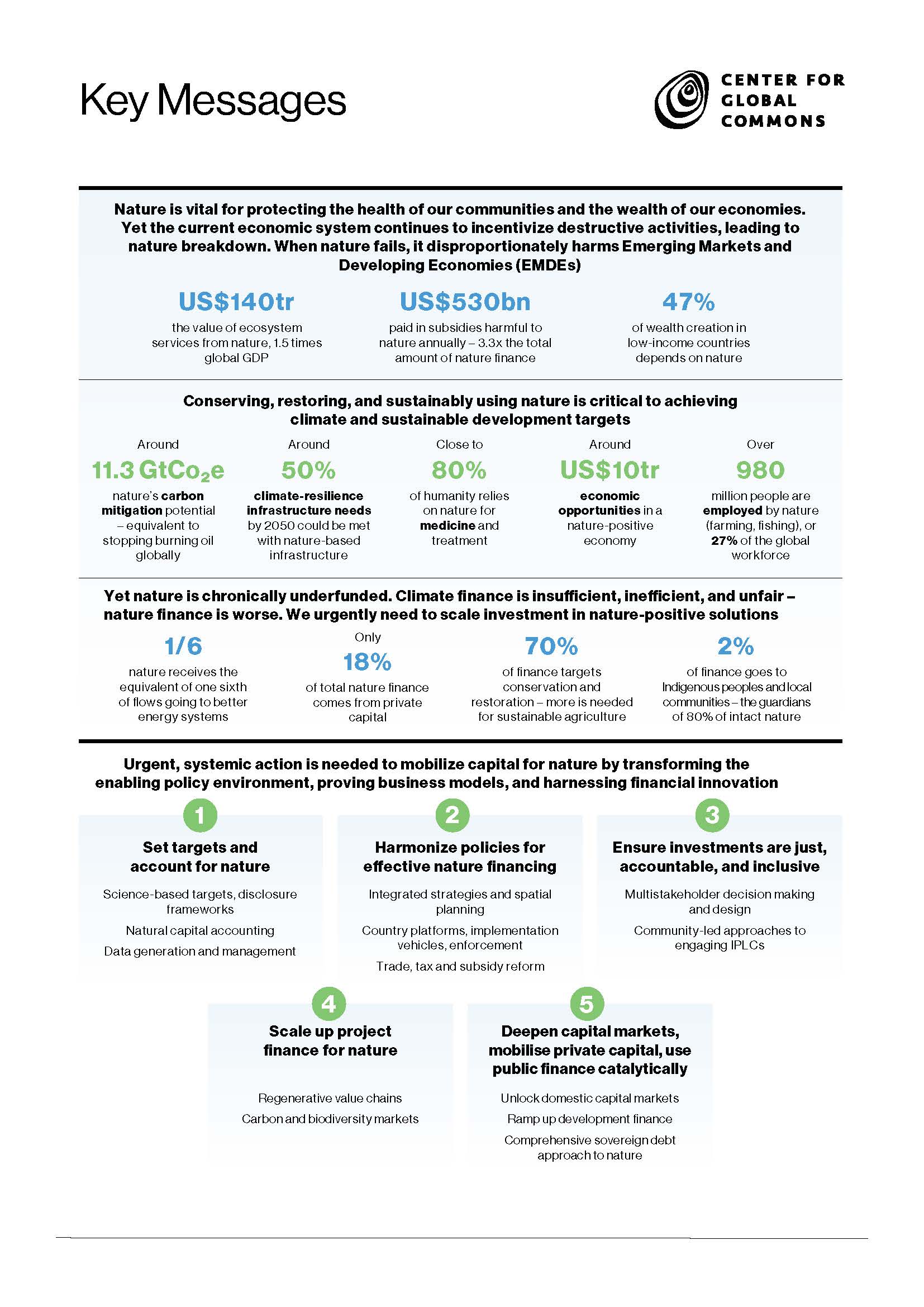“Financing nature: a transformative action agenda” launched at COP28

The report titled “Financing nature: a transformative action agenda” was launched at the 28th session of the United Nations Climate Change Conference: COP28. Authored by world-renowned experts and practitioners, it is led by Prof. Naoko Ishii, the Executive Vice President of the University of Tokyo, inaugural Director for the Center for Global Commons. The report catalogs the problems that are pushing Earth’s natural systems beyond their limits and calls for urgent, systemic action. It emphasizes the need to mobilize capital for nature conservation by transforming the policy environment, proving viable business models, and harnessing financial innovation.
According to the report, we are experiencing a “nature breakdown,” due to our economic systems’ failure to adequately value nature. It points out that conservation, restoration, and sustainable use of natural resources are significantly underfunded. In contrast, harmful subsidies are receiving almost four times more financing than investments that are nature-positive.
For turning the tide and rebuilding our economy’s relationship with nature, coordinated public and private sector action across five action areas is required, to deliver on the Global Biodiversity Framework, Paris Agreement, and Sustainable Development Goals. The report calls on leaders to support an ambitious agenda, to be developed in the next two years, before COP30 in Belém, Brazil.
The additional need for finance is estimated at around $400 billion a year, but it will also be essential to re-orient existing capital away from harmful activities. Nature finance should drive more capital “into” nature – its conservation and restoration – but also “for” nature, shifting agriculture, fisheries, forestry, mining and infrastructure towards nature-positive outcomes. The report calls on a “whole of economy approach” that addresses cross-sector drivers of nature loss.
The full report and its executive summary are available from the links below.

According to the report, we are experiencing a “nature breakdown,” due to our economic systems’ failure to adequately value nature. It points out that conservation, restoration, and sustainable use of natural resources are significantly underfunded. In contrast, harmful subsidies are receiving almost four times more financing than investments that are nature-positive.
For turning the tide and rebuilding our economy’s relationship with nature, coordinated public and private sector action across five action areas is required, to deliver on the Global Biodiversity Framework, Paris Agreement, and Sustainable Development Goals. The report calls on leaders to support an ambitious agenda, to be developed in the next two years, before COP30 in Belém, Brazil.
The additional need for finance is estimated at around $400 billion a year, but it will also be essential to re-orient existing capital away from harmful activities. Nature finance should drive more capital “into” nature – its conservation and restoration – but also “for” nature, shifting agriculture, fisheries, forestry, mining and infrastructure towards nature-positive outcomes. The report calls on a “whole of economy approach” that addresses cross-sector drivers of nature loss.
The full report and its executive summary are available from the links below.
- Financing nature: a transformative action agenda
 (Full report)
(Full report) - Financing nature: a transformative action agenda-Executive summary
 (Executive summary)
(Executive summary)

Contact
The University of Tokyo Institute for Future Initiatives
Center for Global Commons
E-mail: info.cgc[at]ifi.u-tokyo.ac.jp
*Please replace [at] with an @ mark.
The University of Tokyo Institute for Future Initiatives
Center for Global Commons
E-mail: info.cgc[at]ifi.u-tokyo.ac.jp
*Please replace [at] with an @ mark.





